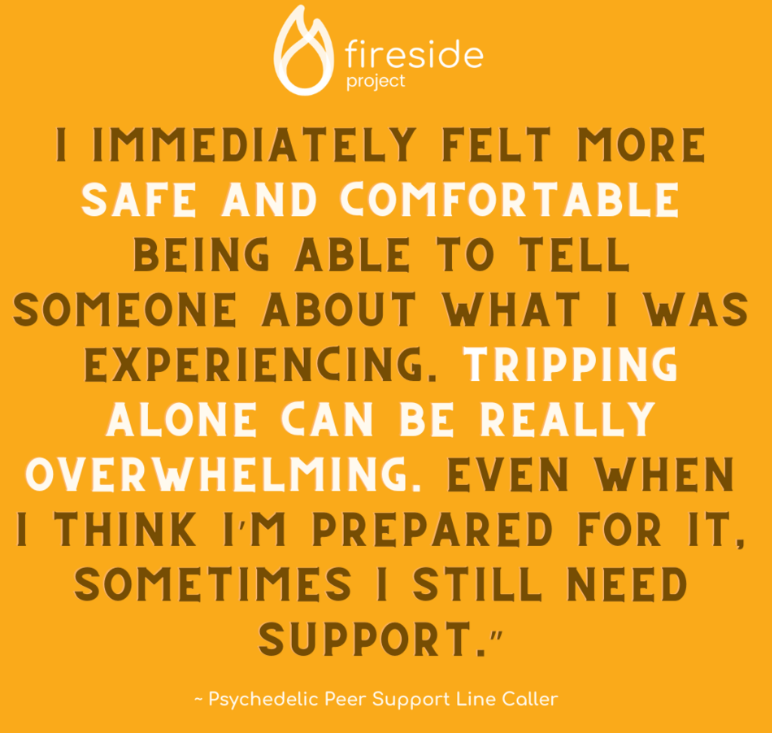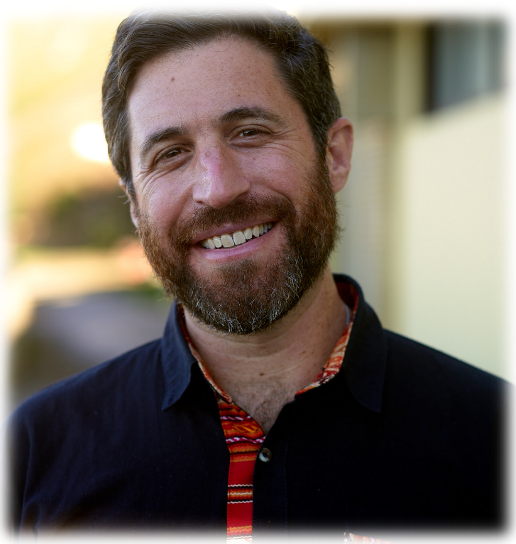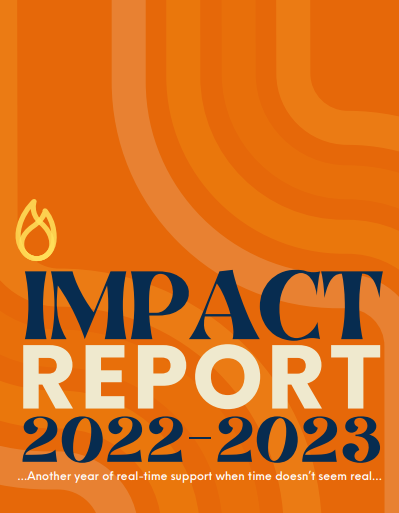Fireside Project was born at a unique moment in history. It was the spring of 2020. The pandemic was raging. Depression, anxiety, and loneliness were at all-time highs. Calls to some hotlines were up one-thousand percent. Against this backdrop, psychedelics were emerging from the shadows after a decades-long prohibition.
The idea
Joshua White was solo-quarantining in his apartment, practicing law, and feeling himself spiraling into depression. He was volunteering for a hotline in San Francisco, which he’d been doing for the prior seven years. Call volume was through the roof, as was the intensity of the calls. Ever since starting to use psychedelics 15 years earlier, Joshua had wanted to devote his life to the psychedelic movement, but hadn’t found the inspiration.
As the pandemic raged, he observed several systemic problems in the psychedelic field. More people were taking psychedelics by themselves, often for the first time and without anyone to turn to for support. Plus, the field was suffering from a lack of diversity, threatening to create a society where only people of privilege would have access to psychedelic healing. The field also lacked a rigorous hands-on training program for aspiring practitioners, and there was a lack of real-world information about all aspects of the psychedelic experience.
Joshua had the idea that a telephone support line for psychedelics could solve all of these problems. It could democratize access to psychedelic support, provide generations of practitioners with an unparalleled training opportunity, and become a robust research platform. By prioritizing recruiting volunteers from marginalized communities, then supporting those volunteers as they pursued careers in psychedelics, the support line could create a more equitable psychedelic field.
After receiving positive feedback on the idea from several close friends and psychedelic pioneers and completing a detailed concept paper, Joshua devoted himself to bringing the idea to life. At the top of his to-do list, he wrote, “Have you pushed this idea as far forward today as possible?” He didn’t go to sleep until the answer to that question was ‘yes.’
The vision was nothing less than to unlock psychedelics’ healing and transformational potential by creating a world where every single person would have access to free support during and after their psychedelic experiences. No one would ever have to be alone with a psychedelic experience ever again, not even for a moment.
The name
Joshua and a friend were sitting at a cafe one night, discussing a name for the organization. They wanted the name to evoke feelings of community, connectedness, openness, and warmth. As their conversation unfolded, a gas-powered fire lamp glowed across the street. Then the idea clicked for Joshua: He wanted people reaching out to the helpline to feel like they’re beside a fire. He came up with the name Fireside Project the next day.
The founding team
Once it became clear that a helpline was a viable idea, Joshua went about assembling a team. He made a list of every person he’d ever met in his life and divided them up into categories based on their professions and skills. One of the people he spoke to early on was Hanifa Nayo Washington, whom Joshua had met at Burning Man a year earlier. Their creative connection was explosive, and she was invited to join Brad Burge, Dr. Julie Holland, and others on a growing advisory board, then to become one of the founding team members. Hanifa, among other things, created Fireside Project’s logo, branding, social media presence, website, and app.
The launch
Fireside Project’s website launched on October 28, 2020, just five days before a watershed moment for the psychedelic movement: In the November 3 election, the state of Oregon decriminalized small amounts of all drugs and required the state to develop a regulatory infrastructure for psilocybin-assisted facilitation. The following week, California State Senator Scott Wiener announced that he would be introducing a bill to decriminalize psychedelics in California. Demand for Fireside Project’s support services was growing by the day.
The trajectory
Since the support line launched on April 14, 2021 (just in time for Bicycle Day!), Fireside Project has made great strides towards fulfilling the original vision of a world where everyone has access to free support during and after their psychedelic experiences. As of May 2023, they have grown to 13 employees, supported 11,500 people, averted innumerable emergency room visits, and trained 300 volunteers, including 100+ from marginalized communities.
As of June 2022, every caller who identifies as BIPOC, transgender, and/or military veteran has the option to process past psychedelic experiences with a volunteer sharing their identity. By the end of the decade, their hope is to offer their services in dozens of languages to every person in the world, and to hit one million conversations per year.










